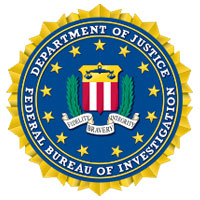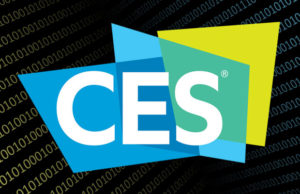
The FBI is planning to have a fully operational facial recognition system in place by this summer and may be well on its way to reaching that goal.
The system will be able to query a database of photos to identify individuals based on their appearance even if they do not have a criminal record, reported Jennifer Lynch, a senior staff attorney at the Electronic Frontier Foundation.
The EFF received documents related to the system following a Freedom of Information Act request for details on the FBI’s Next Generation Identification project, which may hold data on as many as a third of all Americans.
The NGI database contains around 100 million total records, including fingerprints, retinal scans and palm prints. The planned expansion will add people’s faces to the system, along with information including name, age, race and address. Other federal agencies have access to the database, as well as some 18,000 local, tribal, and state law enforcement agencies in the United States.
52 Million Photos
By next year, the system will include up to 52 million photos that will help identify people of interest. Of these, 46 million will come from criminal images like mugshots; 4.3 million from “civil images,” including those from employer background checks; and 215,000 from the Repository for Individuals of Special Concern.
However, the FBI documents do not make clear exactly where the other million or so images would be sourced, indicating only that 750,000 images will come from a “Special Population Cognizant” category and 215,000 from “new repositories.”
The lack of definition for the last two sources is a problem, according to Lynch, because it’s unclear where the data comes from, how the images are collected, who has access to them, what rules govern them, and how they impact privacy.
Unique Number
The linking of criminal and non-criminal databases may be a cause for concern. Every record has a unique number, and all searches will be run against every record in the database — meaning a person who was required to submit a photo for an employer background check could appear in search results and potentially be implicated as a criminal suspect simply based on having an image on file, suggested the EFF.
Several states already are sharing and accessing facial recognition data through NGI, while others are taking part in a pilot project to test facial recognition image quality.
The FBI documents suggest that the system will not make a “positive identification” and “therefore, there is no false positive rate.” The list of candidates returned by an NGI search is intended only as an “investigative lead” rather than identification of a suspect.
Accuracy Concerns
When it comes to accuracy, the FBI ensures only that “the candidate [for investigation] will be returned in the top 50 candidates” 85 percent of the time “when the true candidate exists in the gallery.”
It is not clear what happens when the “true candidate” does not appear in the top 50 results, potentially placing innocent people under investigation because the software determines they have similar facial appearances to suspects, the EFF notes. This practice carries a high possibility of false positive results, with the system potentially suggesting many people as suspects for crimes they did not commit.
The FBI and Congress have not placed meaningful restrictions on the types of data that can be included in the system, who will have access to the system, and how the data can be used, according to the EFF. For instance, the FBI documents indicate that it will not allow non-mug shot images — for example, photos from social networks — to be included, but there are no legal or policy restrictions in place to stop that from happening.
“One of the biggest additional concerns is that as face recognition improves, the FBI may use its database to try to identify faces in a crowd,” the EFF’s Lynch told TechNewsWorld.
“This could pose a huge threat to privacy and free speech for people engaged in political protests or even people who are bystanders at demonstrations. The FBI has already suggested in its public presentations that this is a future goal,” she pointed out.
‘Meaningful Restrictions’
“People opposed to the government’s increasing use of face recognition should contact their state and federal legislators and ask for meaningful restrictions on how law enforcement collects face recognition data and how that data is used and shared,” Lynch said.
However, it might be too late to stop the narrowing levels of privacy, given many people already share images online for anyone to view.
“Anyone could do this with today’s technology,” said Jim McGregor, principal analyst at Tirias Research.
“Just think of the facial recognition database Facebook could assemble. So, anyone that posts pictures up on the Web really shouldn’t be complaining about privacy,” he added.
“There should also not be concerns about false arrests or imprisonment, because this data is just one piece that will used to identify and prosecute potential criminals,” McGregor told TechNewsWorld.
“Yes, there is the potential for misinterpreting an image, especially a low-res image, as someone else or even several people, but that is no different that using a rendering from sketch artist. In fact, it may help improve the image enhancement and recognition technology,” he pointed out.
“Some information will be in the public eye no matter what a person does or what safeguards are put in place,” McGregor concluded. “In addition, I believe that many of the current privacy concerns will fade over time as our society changes and the younger generation matures.”





















































BS. I smell corporate contracts to sell these systems. The whole premise of sane and safe law enforcement (LE), hard to corrupt by government, is to force LE to prioritize its efforts to address the 5% of lawbreakers doing 95% of the damage. LE must get warrants to go after the worst offenders and leave everybody else alone.
Otherwise, we WILL get Orwell’s police state and the start of all kinds of destructive mischief, launched through government and its (corporate? criminal?) pals. How we forget McCarthy era and Hoover’s nonsense, let alone everything else.
Law enforcement is supposed to be difficult. For constitutional reasons. Gathering data on everyone erases that principle.
Here’s an idea people should just use stickers or makeup to thwart this facial recon system applied something like the shape painted on ships to make them harder to recognize on the seas.